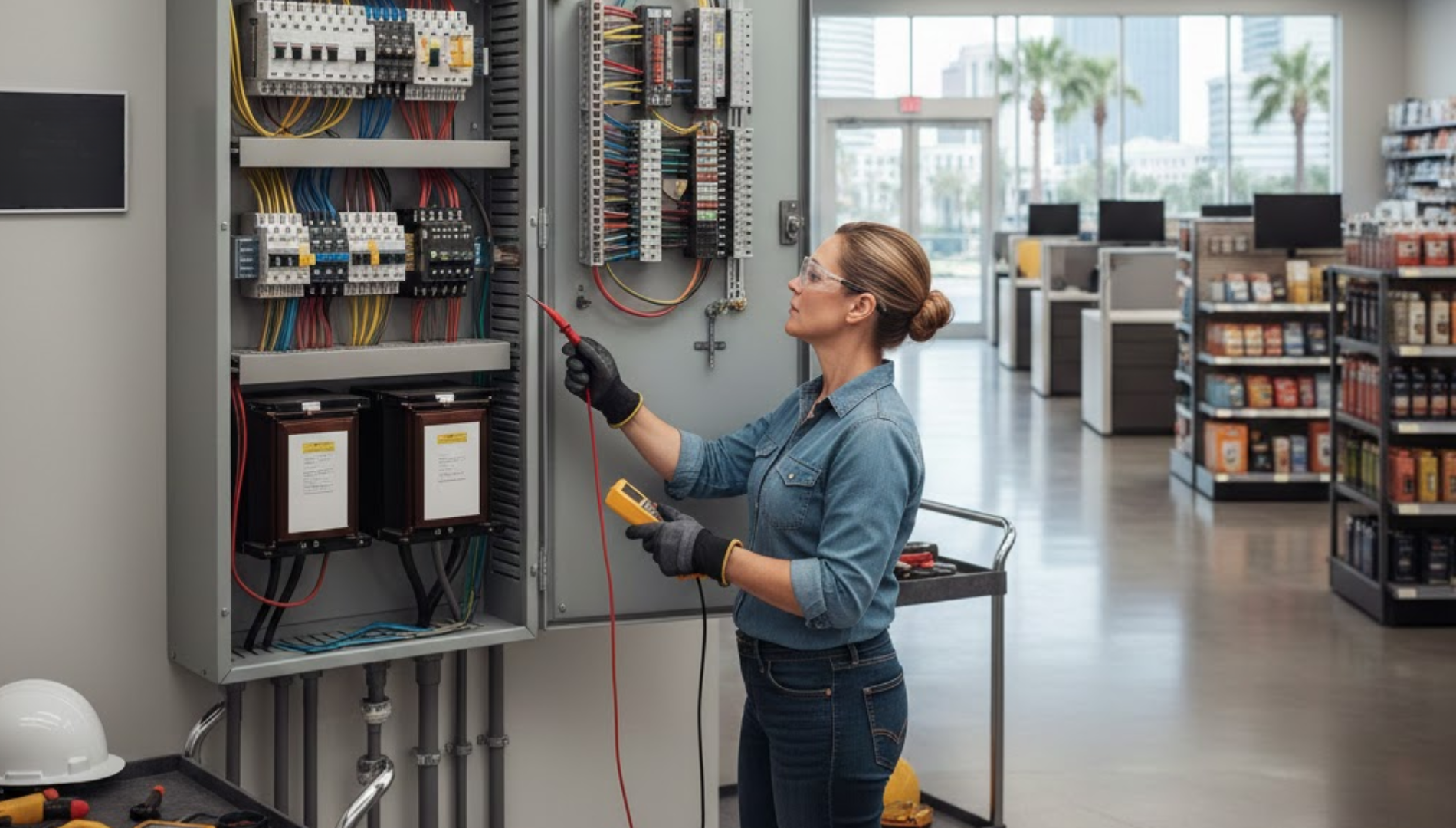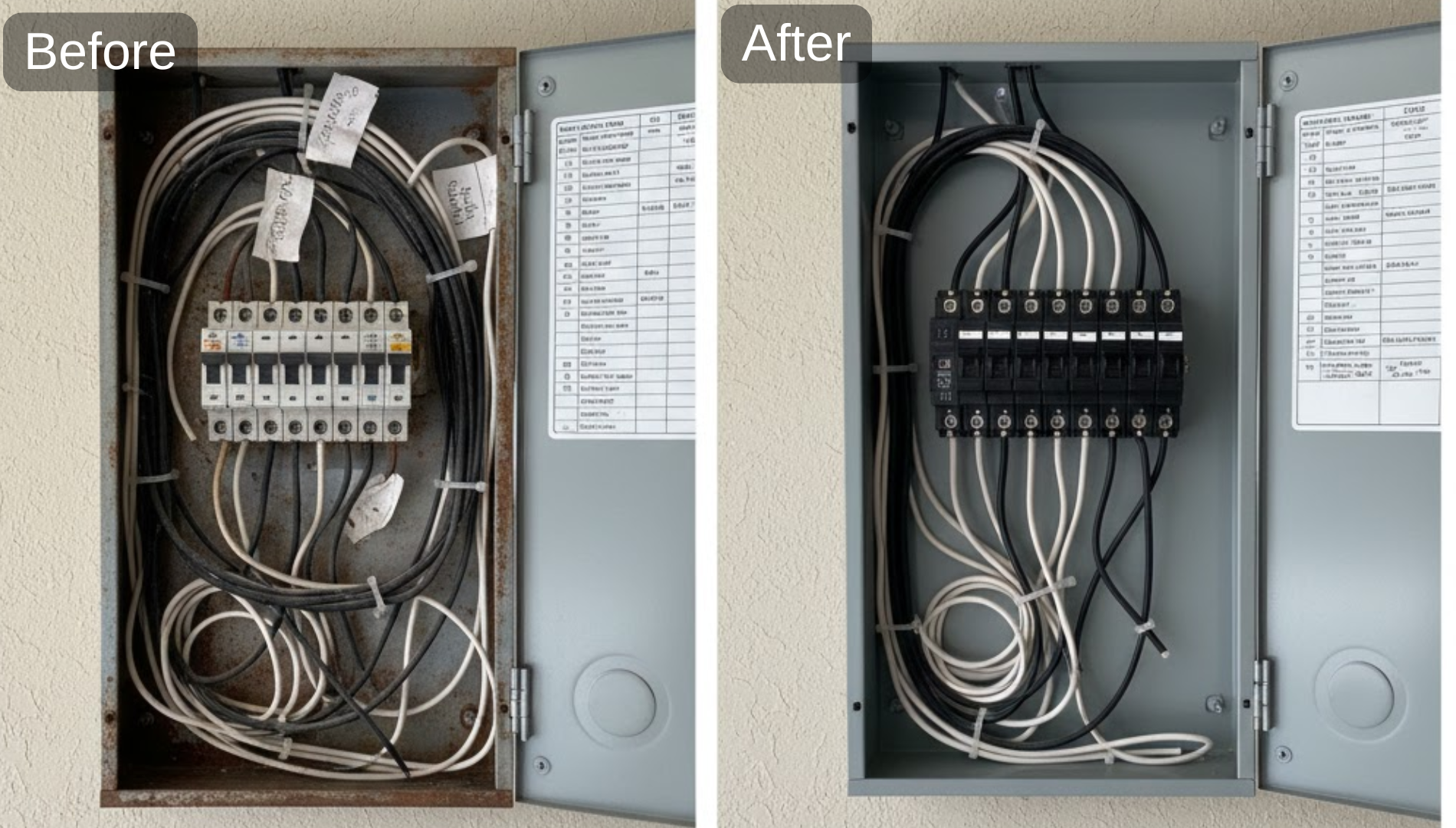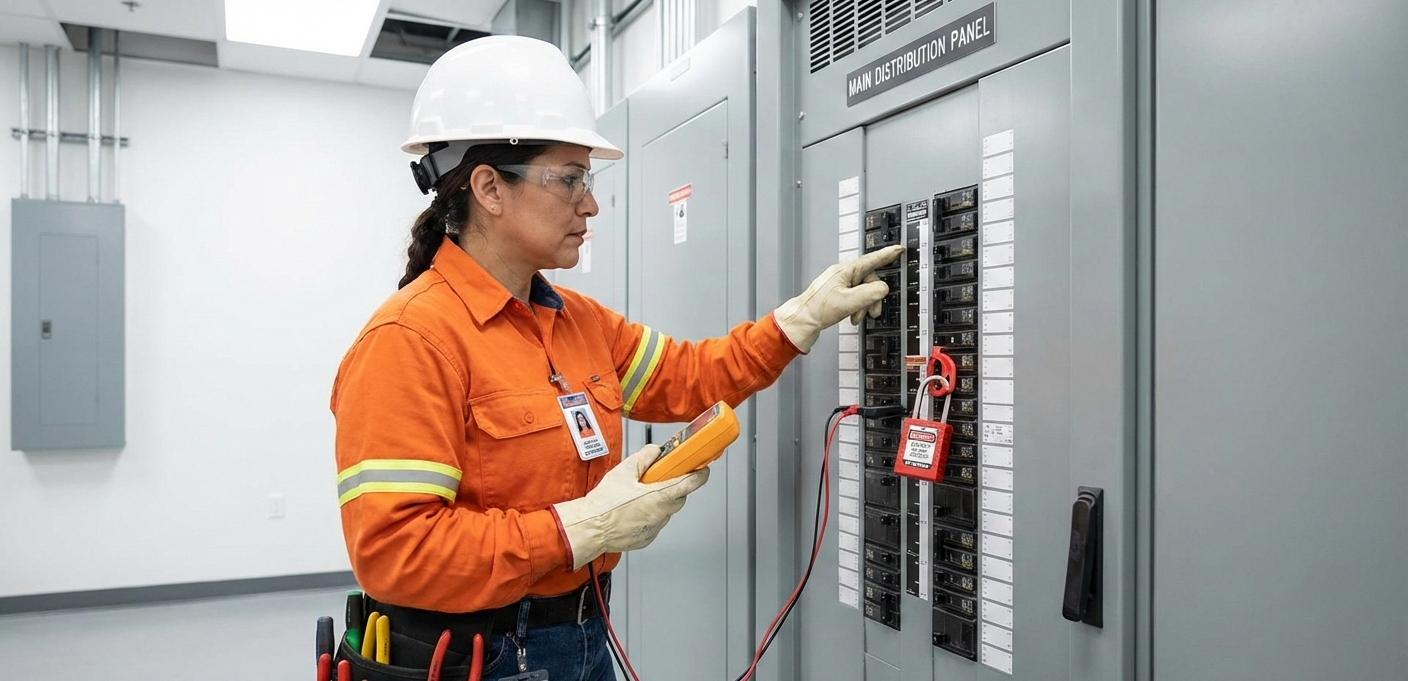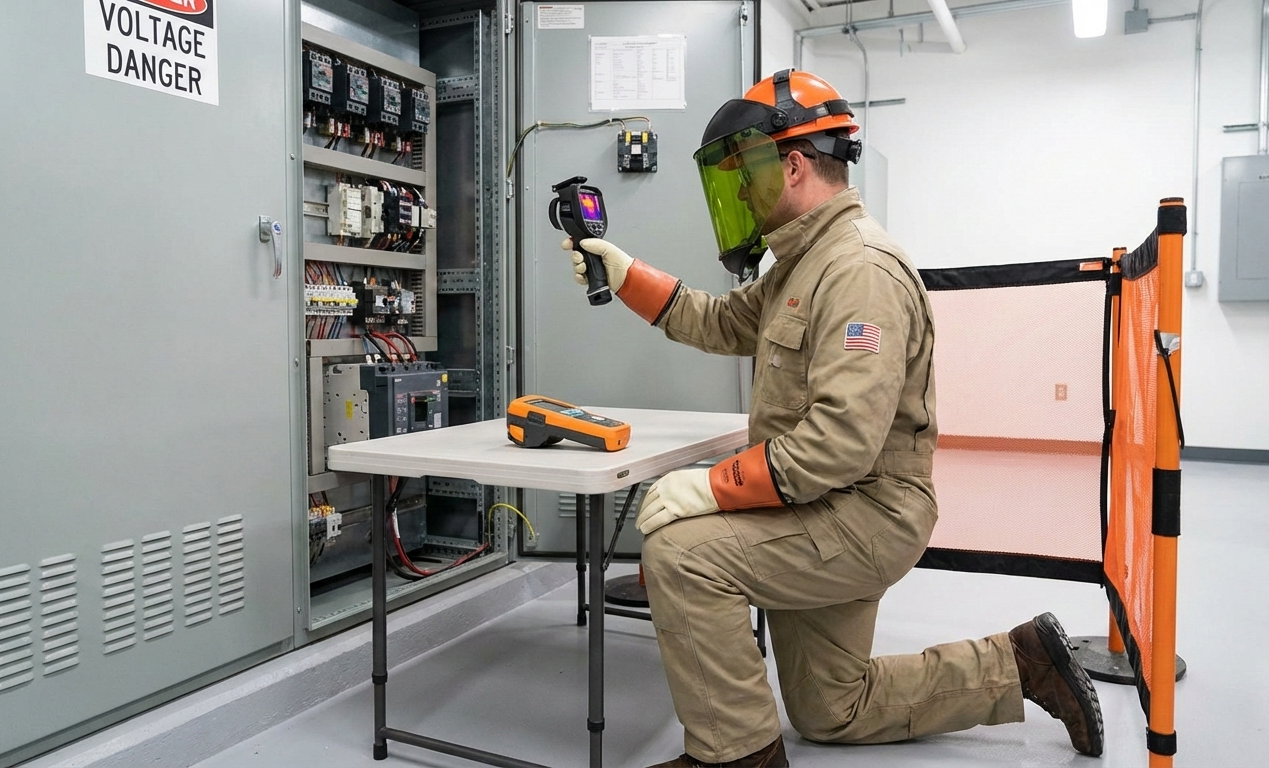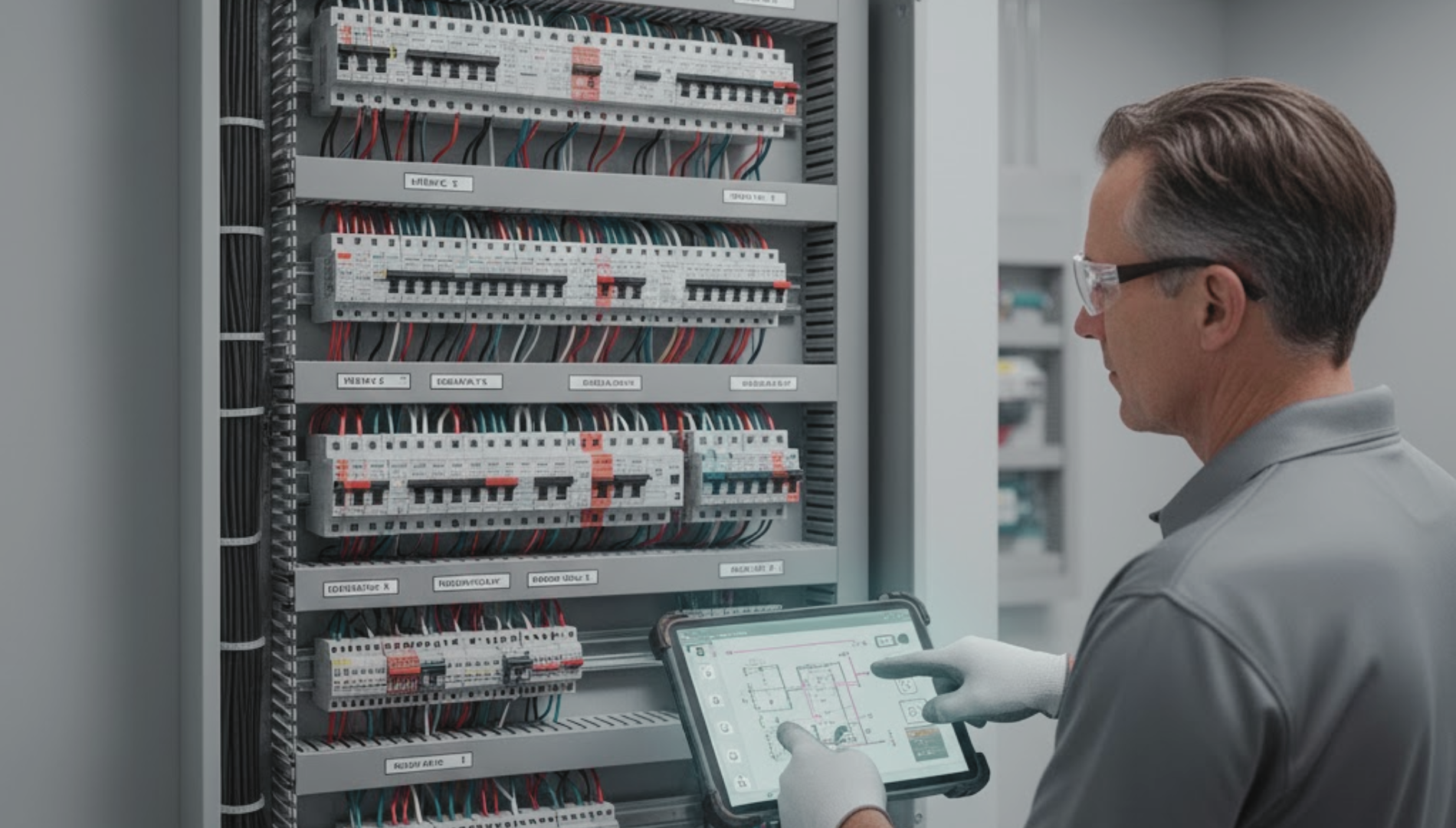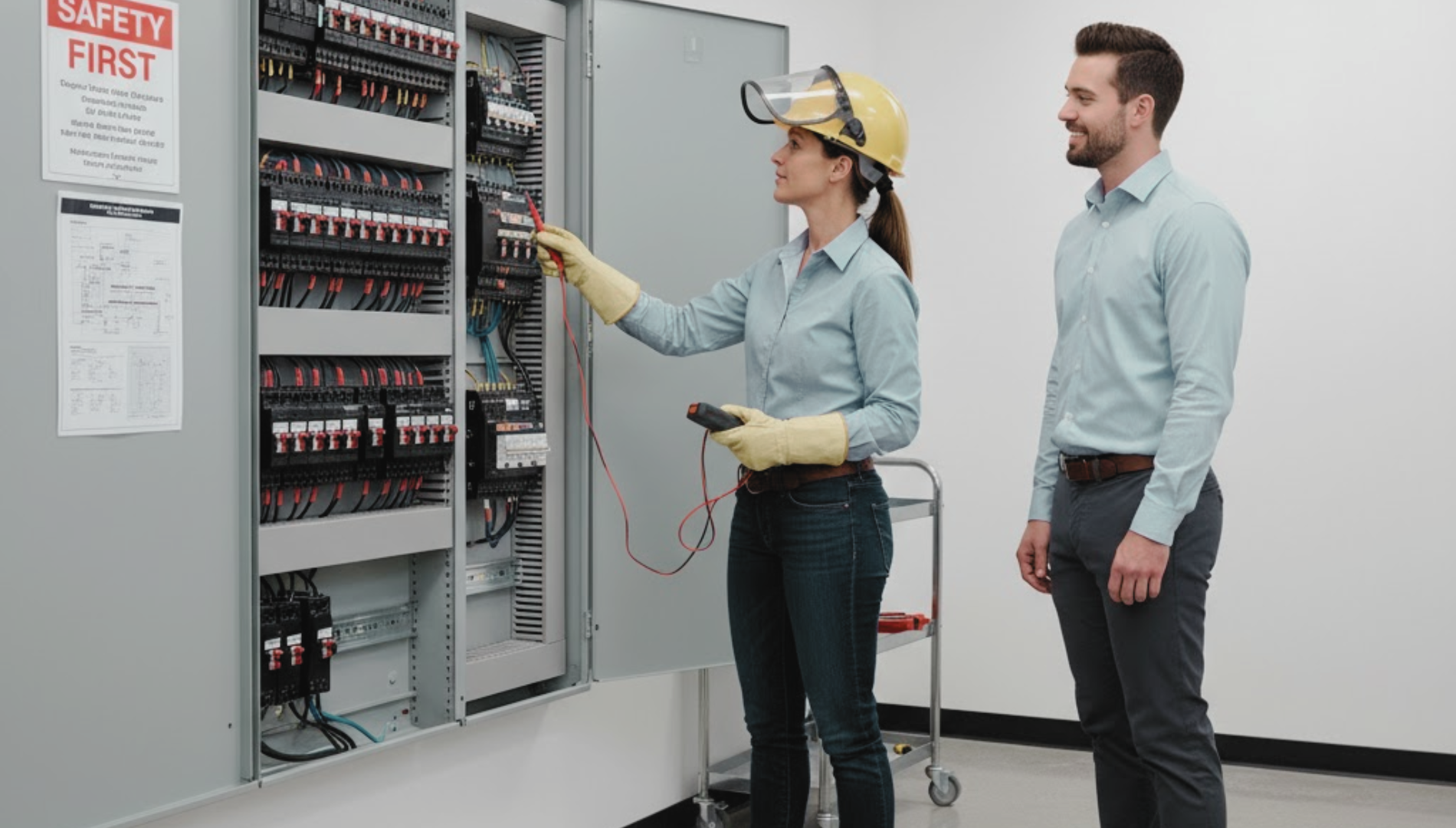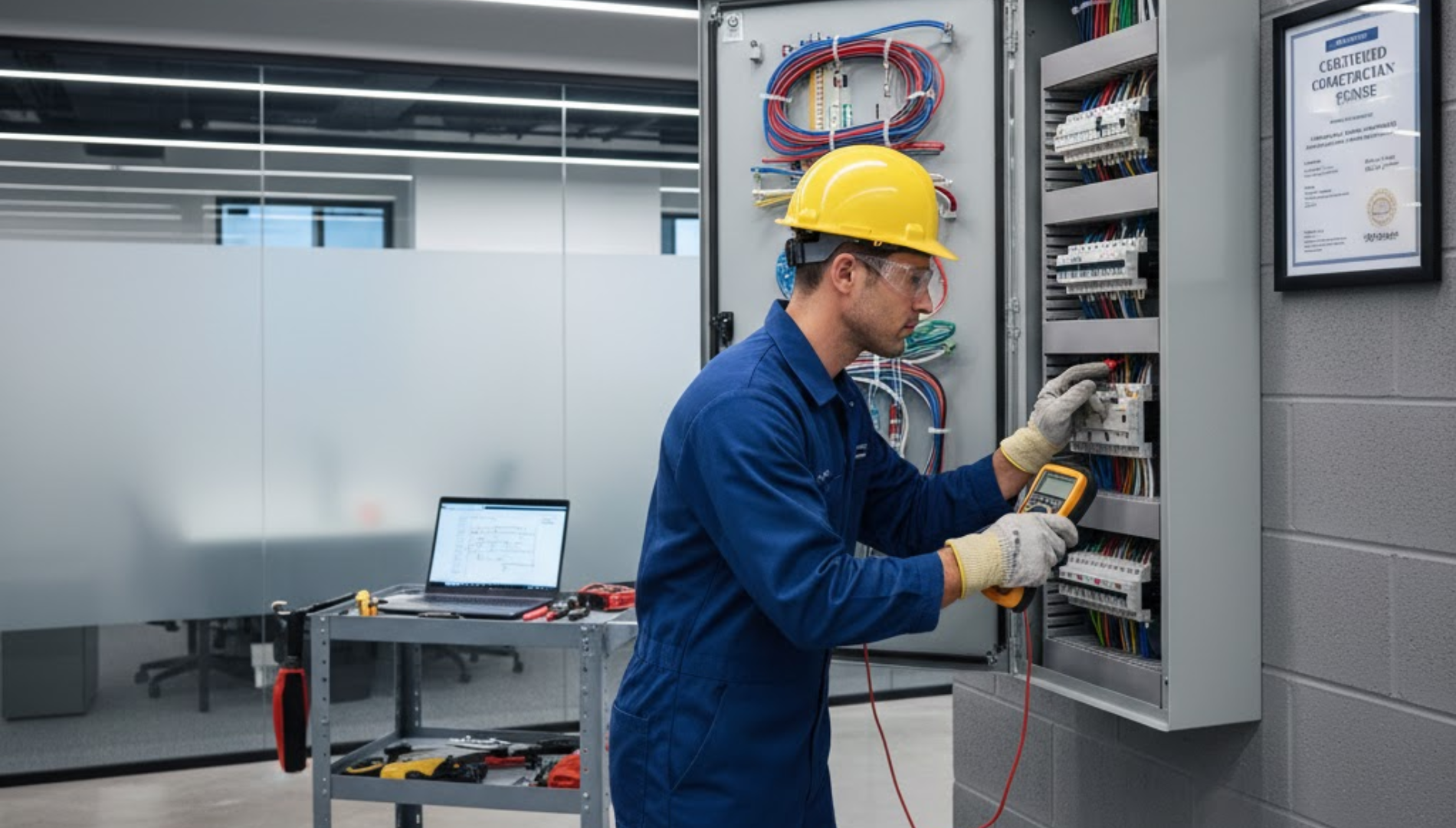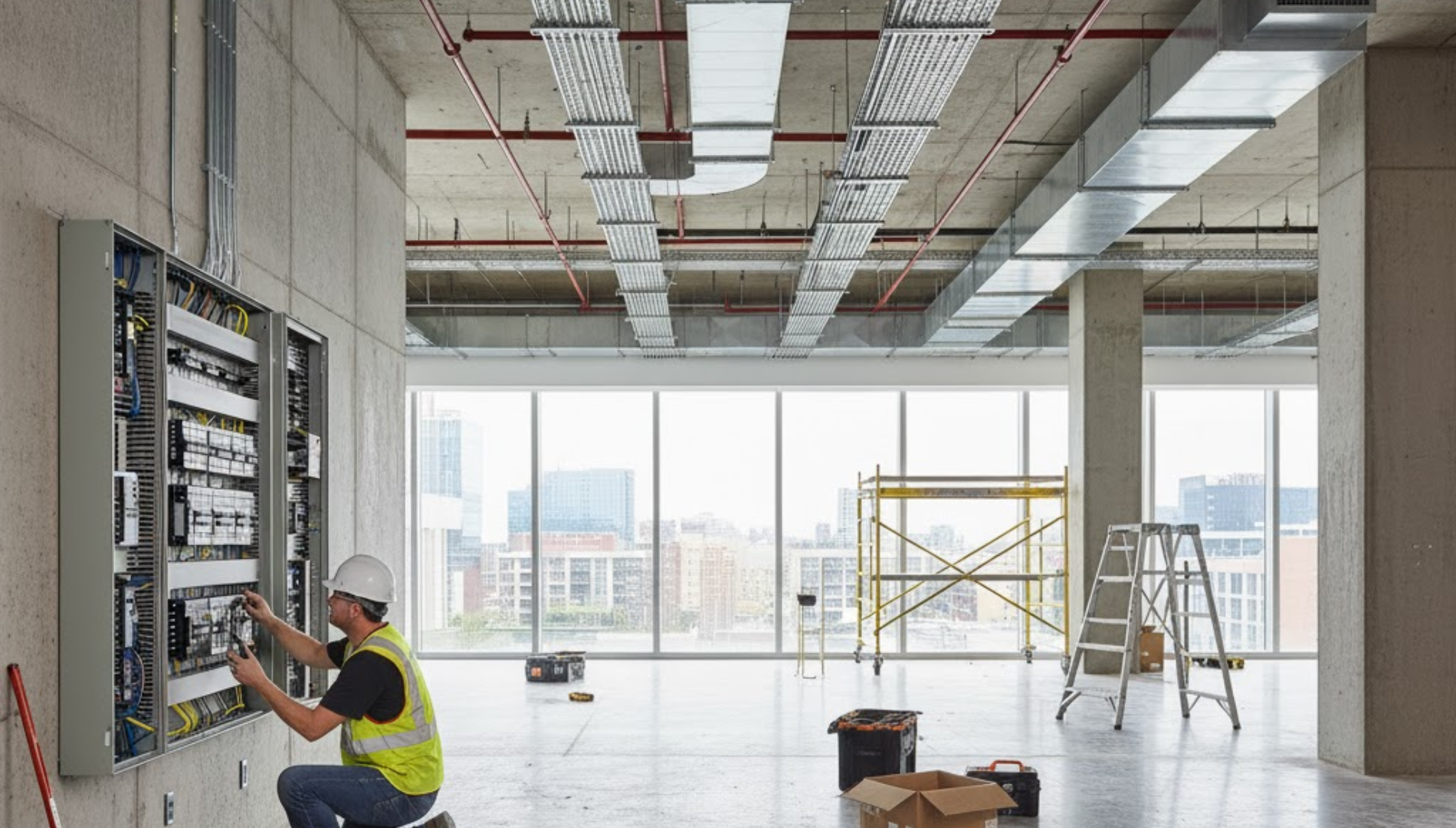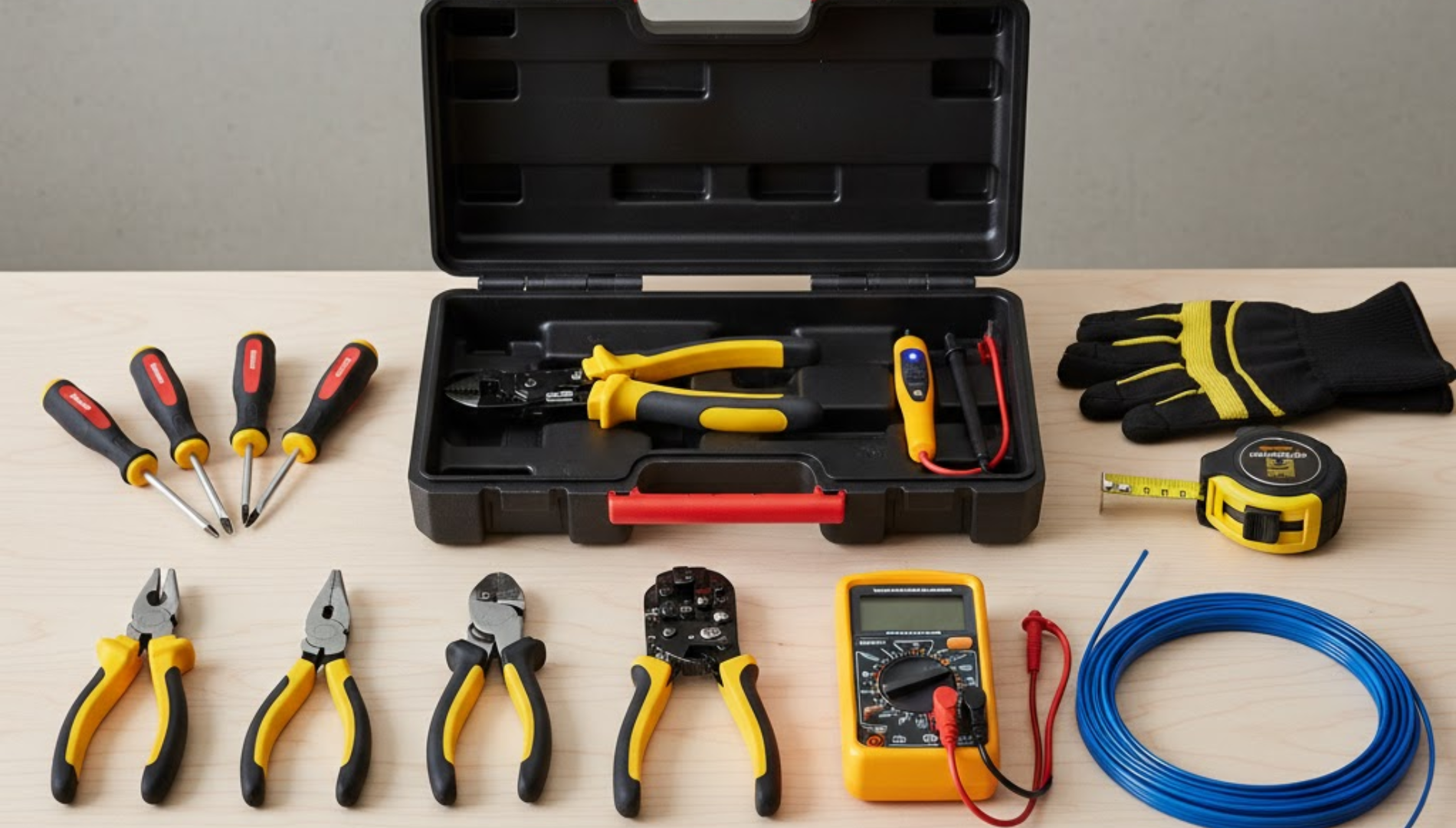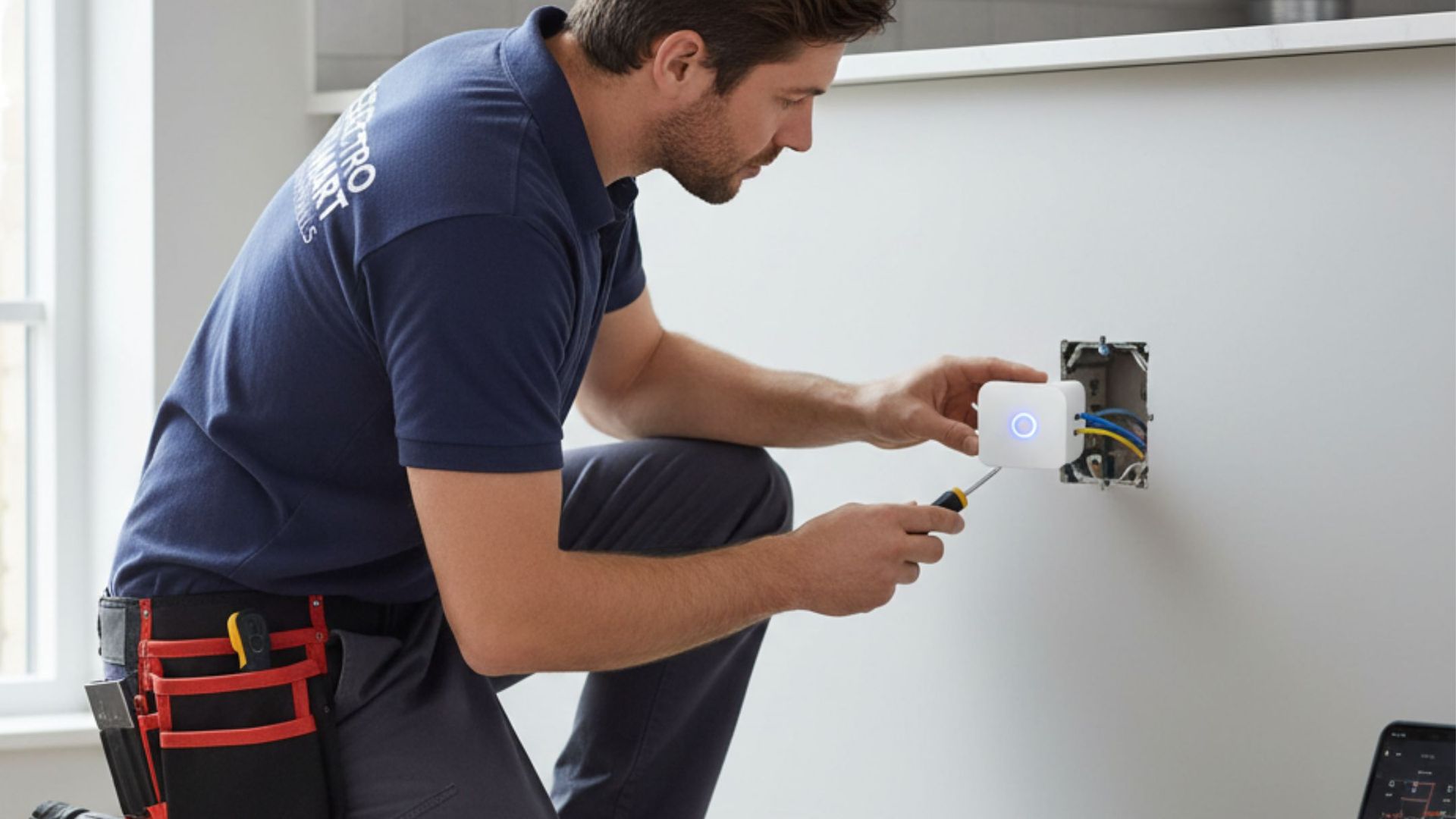Boost Your Bottom Line: Energy Efficiency for Businesses
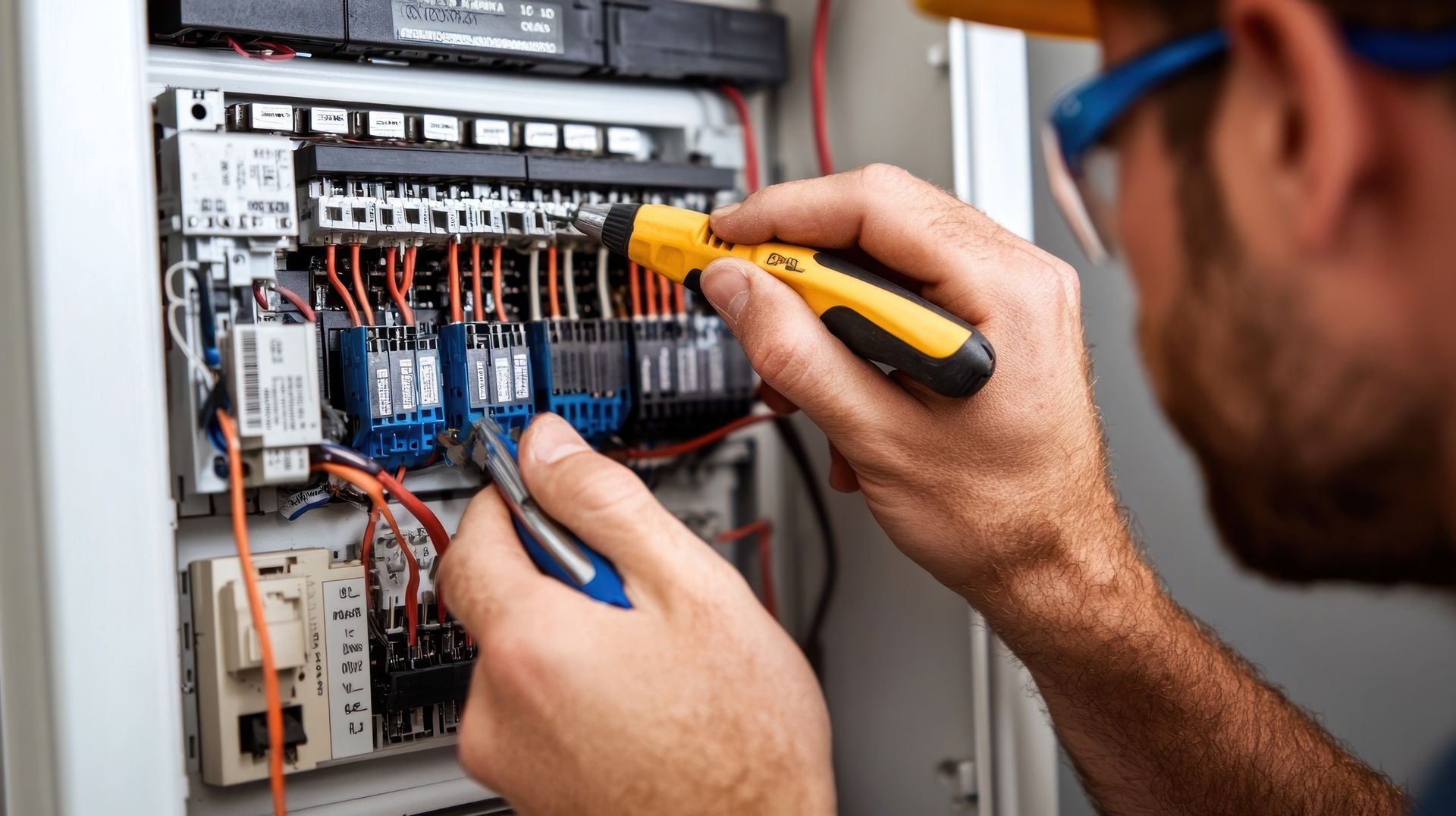
As businesses strive for greater sustainability and cost-effectiveness, energy efficiency has become a critical focus in commercial electrical installation. By adopting best practices in energy management, commercial facilities can significantly reduce their energy consumption and operational costs. This shift not only benefits the environment but also enhances the overall functionality and profitability of the space. This post will explore various strategies for achieving energy efficiency through innovative lighting solutions, high-efficiency equipment, smart technology integration, regular maintenance, and renewable energy options.
Energy-Efficient Lighting Solutions
One of the most impactful changes a commercial space can make is to its lighting system. Switching to LED lighting and implementing smart lighting controls can drastically reduce energy consumption.
Benefits of LED Lighting
LED lights are significantly more energy-efficient than traditional incandescent or fluorescent bulbs, using up to 75% less energy. They also have a longer lifespan, which means fewer replacements and lower maintenance costs. With a variety of color temperatures available, LED lighting can create a more inviting atmosphere while enhancing productivity. Furthermore, LEDs emit less heat, reducing the burden on cooling systems and leading to additional energy savings.
Smart Lighting Controls
Incorporating smart lighting controls, such as motion sensors and programmable timers, allows businesses to optimize energy use. These systems can automatically adjust lighting based on occupancy or natural light levels, ensuring that lights are only on when needed. This proactive approach can lead to substantial energy savings, making it an essential component of an efficient commercial electrical installation.
Daylight Harvesting
Another effective strategy for enhancing energy efficiency is daylight harvesting. This involves using natural light to supplement artificial lighting in commercial spaces. By installing light sensors that monitor daylight levels, businesses can automatically adjust the brightness of electric lights based on the amount of natural light available. This practice not only reduces energy consumption but also creates a healthier work environment, as studies show that exposure to natural light can improve employee mood and productivity.
High-Efficiency Electrical Equipment
Upgrading to high-efficiency electrical equipment is another key strategy for reducing energy consumption in commercial buildings. Various systems can be integrated to achieve this goal.
Energy-Efficient HVAC Systems
Heating, ventilation, and air conditioning (HVAC) systems are significant energy consumers in commercial spaces. Installing energy-efficient models with advanced features, such as variable speed motors and programmable thermostats, can reduce energy use while maintaining comfort levels. Regularly servicing these systems also ensures they operate at peak efficiency.
Energy Star Appliances
Using Energy Star-rated appliances, such as refrigerators, dishwashers, and washing machines, can lead to substantial energy savings. These appliances meet strict energy efficiency guidelines set by the EPA, ensuring lower operating costs while providing reliable performance. Businesses should consider replacing outdated equipment with Energy Star options to enhance their overall energy efficiency.
Smart Technology Integration
Integrating smart technology into commercial electrical installations can provide significant improvements in energy efficiency.
Building Automation Systems (BAS)
Building automation systems enable real-time monitoring and control of various building systems, including lighting, HVAC, and security. By automating these systems, businesses can optimize energy use based on occupancy patterns, reducing waste and enhancing comfort. For instance, a BAS can adjust heating and cooling based on the time of day and occupancy, ensuring that energy is only used when necessary.
Smart Meters
Smart meters provide businesses with detailed insights into their energy consumption patterns. This data allows for informed decision-making regarding energy use, helping identify areas for improvement. With real-time feedback, businesses can implement strategies to reduce consumption and enhance energy efficiency.
Energy Management Software
Energy management software (EMS) offers another layer of integration by providing comprehensive analytics and reporting on energy consumption. This software collects data from smart meters and BAS, allowing businesses to visualize their energy usage and identify trends over time. By analyzing this information, companies can pinpoint inefficiencies, set energy-saving goals, and track progress toward those goals. Implementing an EMS not only aids in energy reduction but also fosters a culture of sustainability within the organization by engaging employees in energy conservation efforts.
Regular Maintenance and Upgrades
Routine maintenance and timely upgrades play a vital role in maintaining energy efficiency in commercial electrical installations. Learn more about electrical installations in commercial buildings when you read “Commercial Electrical Installation Planning and Budgeting.”
Importance of Routine Inspections
Conducting regular inspections of electrical systems can identify inefficiencies, such as faulty wiring or outdated equipment. Addressing these issues promptly not only improves safety but also enhances energy performance. Regularly scheduled maintenance ensures that systems operate optimally, reducing energy waste and operational costs.
Upgrading Old Equipment
Replacing outdated equipment with newer, more efficient models can lead to significant energy savings. Businesses should periodically assess their electrical systems to determine which components require upgrades. Investing in energy-efficient technology is crucial for maintaining a competitive edge in today’s market.
Renewable Energy Options
Integrating renewable energy sources, such as solar panels and wind turbines, can greatly enhance energy efficiency in commercial buildings.
Solar Panel Installation
Solar panels allow businesses to harness the sun's energy, reducing reliance on traditional energy sources and lowering utility costs. By generating their own electricity, commercial buildings can achieve long-term savings while promoting sustainability. Various financing options are available, making solar panel installation more accessible to businesses of all sizes.
Energy Storage Systems
Energy storage systems, such as batteries, play a critical role in maximizing the benefits of renewable energy sources. By storing excess energy generated during peak sunlight or wind periods, businesses can use this stored energy during high-demand times or when renewable resources are not producing energy. This capability helps to stabilize energy costs, ensure a reliable power supply, and enhance overall energy efficiency. Additionally, integrating energy storage supports the grid during peak demand, contributing to a more resilient energy infrastructure.
Conclusion
Incorporating energy-efficient practices into commercial electrical installations is essential for reducing operational costs and promoting sustainability. By adopting energy-efficient lighting solutions, integrating high-efficiency equipment, utilizing smart technology, maintaining systems, and considering renewable energy options, businesses can significantly enhance their energy performance. These best practices not only contribute to a greener environment but also improve the overall efficiency and profitability of commercial buildings.
Are you ready to make your commercial building more energy-efficient?
Nash Electric LLC provides tailored solutions for commercial electrical installation that can help you save on energy costs while enhancing your facility's performance. With our expertise in energy-efficient practices and advanced technologies, we can transform your space into a model of sustainability.
Reach out to our team today and take the first step toward a greener, more efficient future!

